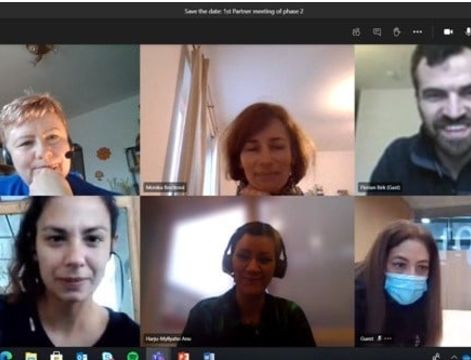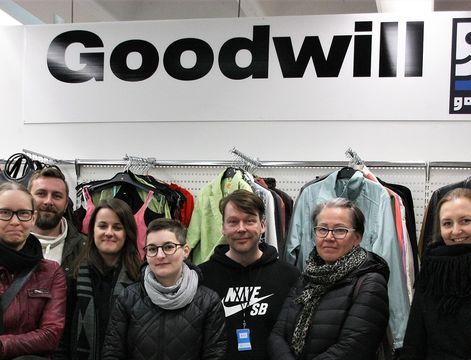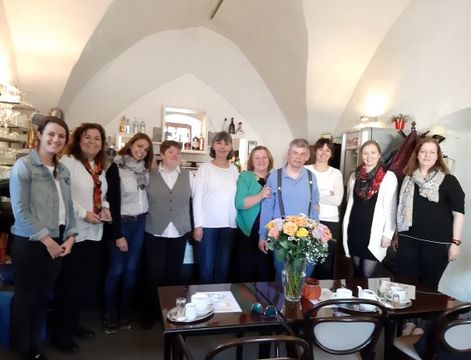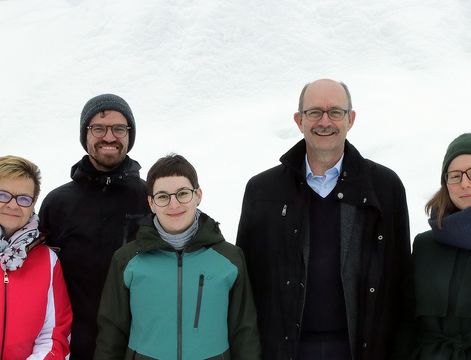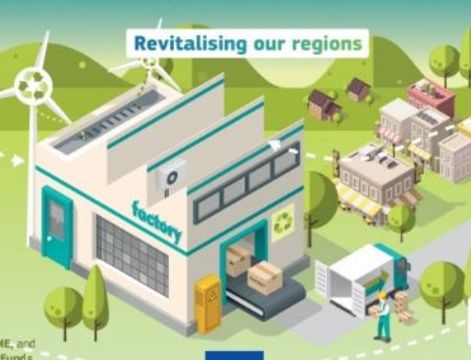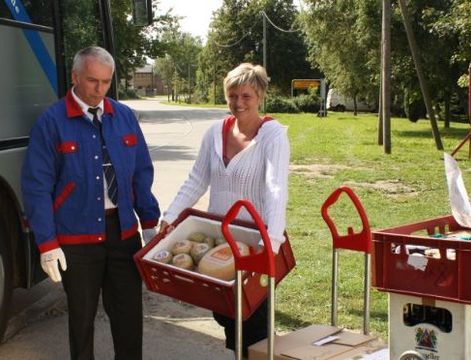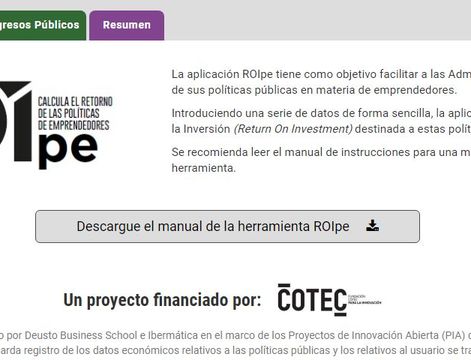This is the second part of the chronicle of our trip to Brandenburg. Here you can read the first part.
09.06.2017: Public Sector and Social Innovation
Of its 122.000 only 90.000 are projected to remain in the sparsely populated district of Schwedt, which lies in the north-eastern part of Brandenburg,by 2030. With an unemployment rate averaging at 12% (and a youth unemployment rate reaching a staggering 10% (national average: 4.8%)) the district faces significant challenges concerning the integration of large parts of its population into the labour market.
A best practice and an example for successful interregional knowledge transfer, Schwedt’s MUG. e.V. is working towards qualifying and integrating long-term unemployed people into the region’s first labour market. The initiative was jointly developed and funded by the local public employment service (“Jobcenter”) and the Agency for Local and Economic Development and Tourism.
On the morning of the visit’s second day, the study group was introduced to the MUG’s system which isbased on an Austrian best practice and uses a dense network to public and private sector employers as well as individual counselling services to provide their clients with social support and real work experience to slowly grow their skill set and capitalize on their potentials.
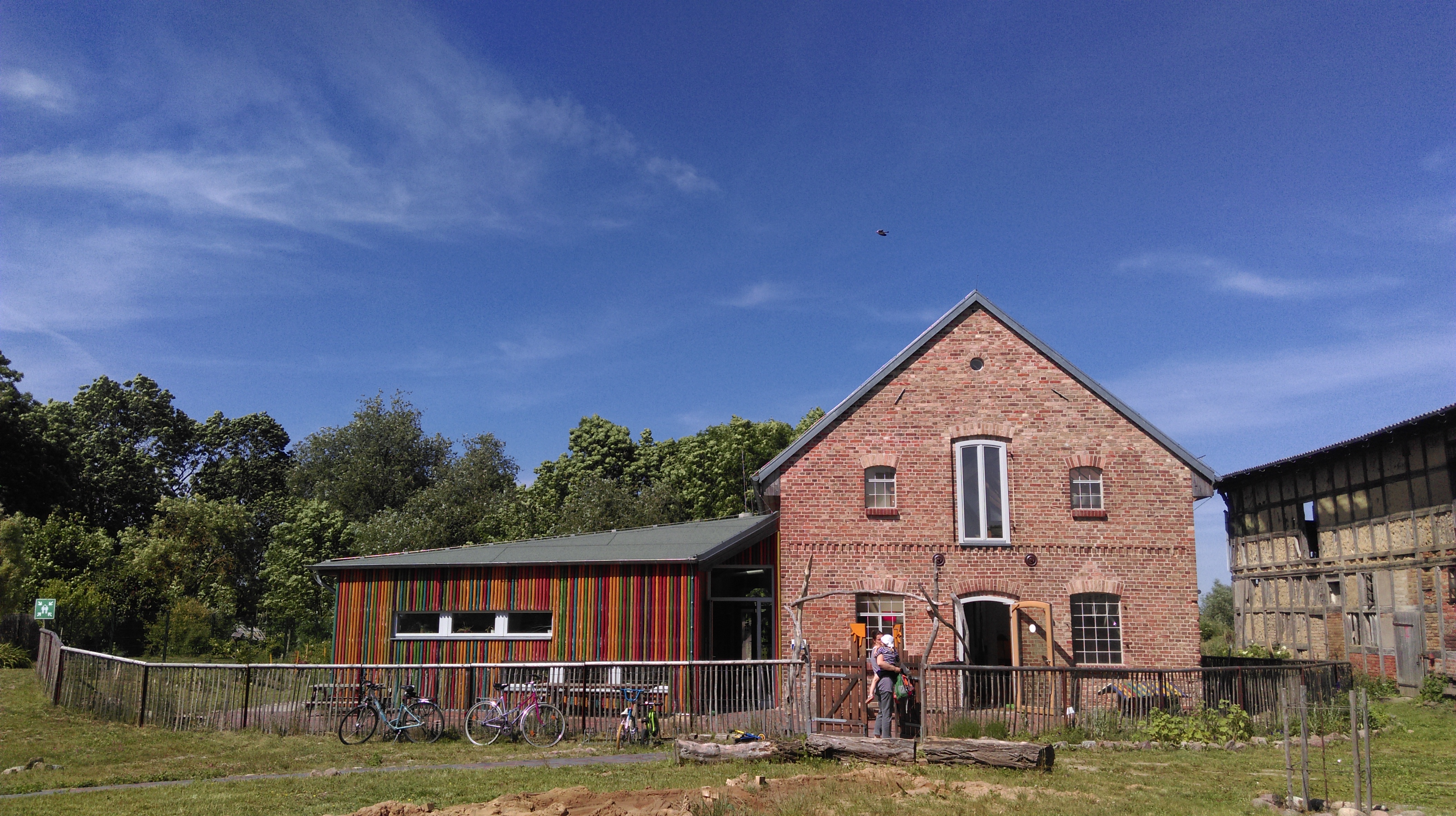
Drivers of Social Innovation
Besides experiencing first-hand how to create employment opportunities in a difficult environment, the site visit participants went on to study how the provision of (alternative)education infrastructure constitutes a vital element for community development. Zuckermarcke.V. is an education initiative based on an open-minded pedagogical concept and de facto compulsory parent involvement.
The project is located in the village of Wallmow, a small, populous and dynamic town, which, however, is embedded in a wider area afflictedby rural exodus. Heike Reinhold, Mandy Möhwald and Jana Franke-Frey of Zuckermarcke.V. explained to us how Wallmow differs from its regional counterparts and that freedom to experiment constituted a crucial element for their social innovation to thrive. An increasing amount of legislation, state and budget control, on the other hand, has been perceived both a threshold for further development and an impulse to find creative and thus innovative solutions along the way.
On our last stop in Hennigsdorf the group visited Vivian Böllersen of the ÖkonauteneG, a co-operative dedicated to stop land grabbing efforts in Brandenburg by buying agricultural land and developing it ecologically.
The co-operative also provides a dense network for young farmers - like Ms. Böllersen herself - willing and able to cultivate agricultural land in a more sustainable way. Thus, community supported agriculture (CSA) initiatives such as ÖkonauteneG, provide for an alternative support mechanism for people willing to settle in rural areas and to sustainably develop local farm land.

Participants:
• Mr. Jörg Jurkeit (MASGF)
• Mr. Tobias Federwisch (IRS)
• Florian Birk (Social Impact)
• Hendrik Peters (Social Impact)
• Ana Gomez (Cives Mundi)
• Marlene Kohllechner-Autto (MTI/LUAS)
• Anu Harju-Myllyaho (MTI/LUAS)
• Blanca Moreton Bombin (Junta de Castilla y Leon)
• Eva Havelková (EPIC)


